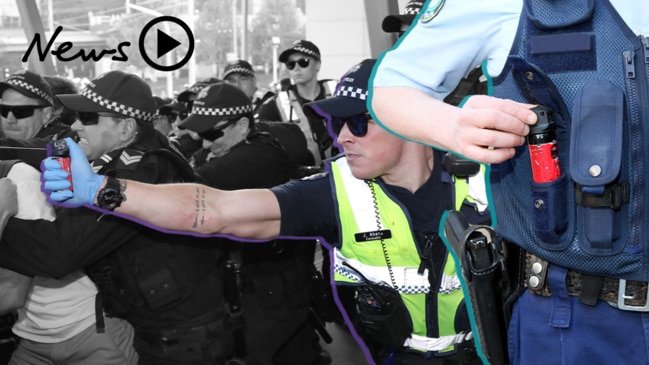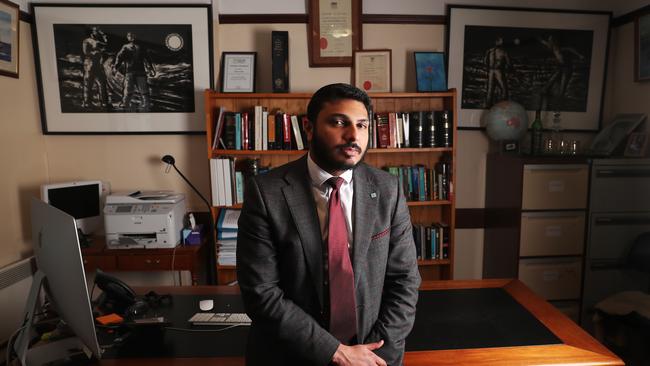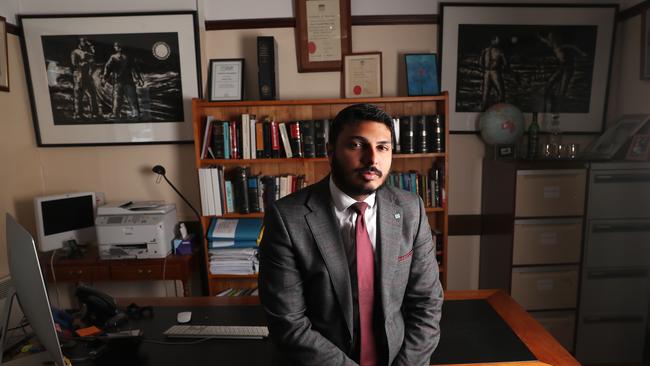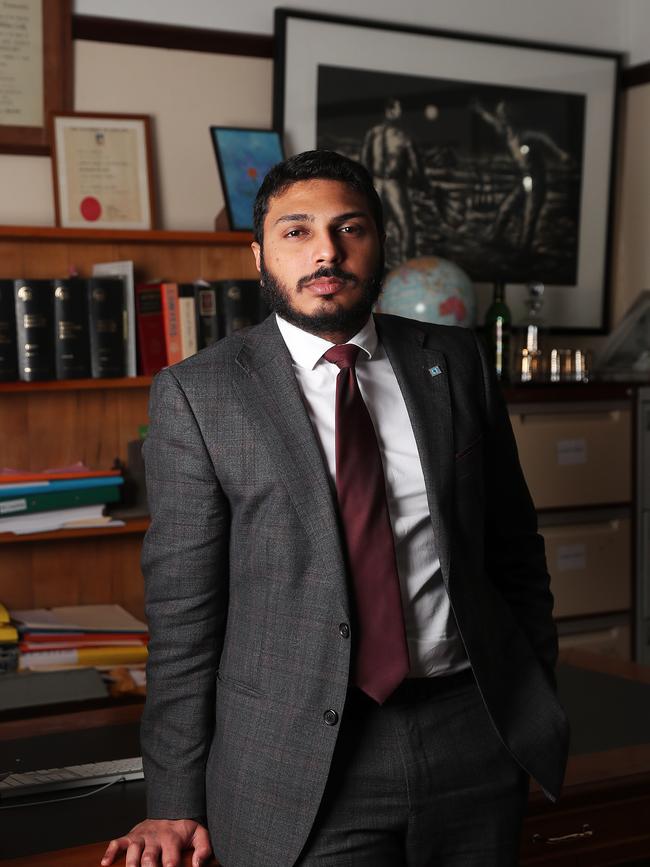Lawyer says police misconduct tribunal urgently needed in Tasmania
“No-one with a firearm should be given that much power. It’s just not right”: A Hobart lawyer is calling for the urgent introduction of an independent police complaints tribunal in Tasmania.

Police & Courts
Don't miss out on the headlines from Police & Courts. Followed categories will be added to My News.
- Rebels bikie boss wins evading police on Harley Davidson case
- Youth refused bail after dramatic Montrose arrest captured on video
A HOBART lawyer is calling for the urgent establishment of an independent police complaints tribunal in Tasmania, claiming the force is not subject to enough scrutiny when it comes to allegations of misconduct.
Dinesh Loganathan, alongside James Crotty, says there is “no public confidence” into how the state currently runs police misconduct complaints via internal Professional Standards.
He said the Integrity Commission, an independent agency that has been running since 2010, investigated dishonesty and corruption matters rather than allegations of on-the-ground police impropriety.

“There needs to be some independence and transparency as to how complaints are managed and handled,” Mr Loganathan said.
“The Australian Health Practitioner Regulation Agency is an independent agency that investigates medical practitioners all over the country. Each state has its equivalent of the legal profession board that investigates lawyers. So why is it that people who carry firearms … are investigated by another police officer?
“No-one with a firearm should be given that much power. It’s just not right.”
Mr Loganathan pointed to independent bodies interstate that investigate alleged police misconduct, including the South Australian Police Disciplinary Tribunal, the Victorian Independent Broad-based Anti-corruption Commission and the NSW Law Enforcement Conduct Commission.

He said a number of his clients had raised concerns about improper police behaviour – including allegations of phone-tapping and claimed there had been no investigation of a police officer who allegedly hit his partner and took their children without legal permission.
Mr Loganathan also touched on the recent case of Shaun Kelly, the Rebels motorbike club boss, who was accused of speeding away from police in a “puff of smoke” while looking at officers through his rear vision mirror.
In January this year, Magistrate Glenn Hay described the officer’s claims as “clearly fanciful” given Mr Kelly was wearing sunglasses.
He also mentioned the case of Berriedale youth John Saether, who was swarmed by several gun-wielding officers and knocked to the ground by a police vehicle after allegedly holding up a pharmacy.
“Is that a reasonable force?” he said.
“There were eight police officers, trained officers, and not one of them were able to pull a … knife off him?”
The case was referred to Tasmania Police’s Professional Standards unit for investigation.
Australian Lawyers Alliance Tasmanian president Sebastian Buscemi backed up the call.
“I think it’s a great idea, it is a positive step to ensure accountability and transparency,” he said.
But Police Minister Mark Shelton said Tasmanians could “have confidence that there are robust processes in place to facilitate complaints if they do arise”.
“It is completely incorrect to suggest there are not independent avenues to report police misconduct,” he said.

“Complaints against police can be directed to the Ombudsman and the Integrity Commission, who both also have the ability to review the investigations conducted by Tasmania Police.
“Complaints can also be made directly to Tasmania Police … the Integrity Commission also conducts regular audits of internal investigations conducted by police and the manner in which the Commissioner deals with complaints.”


